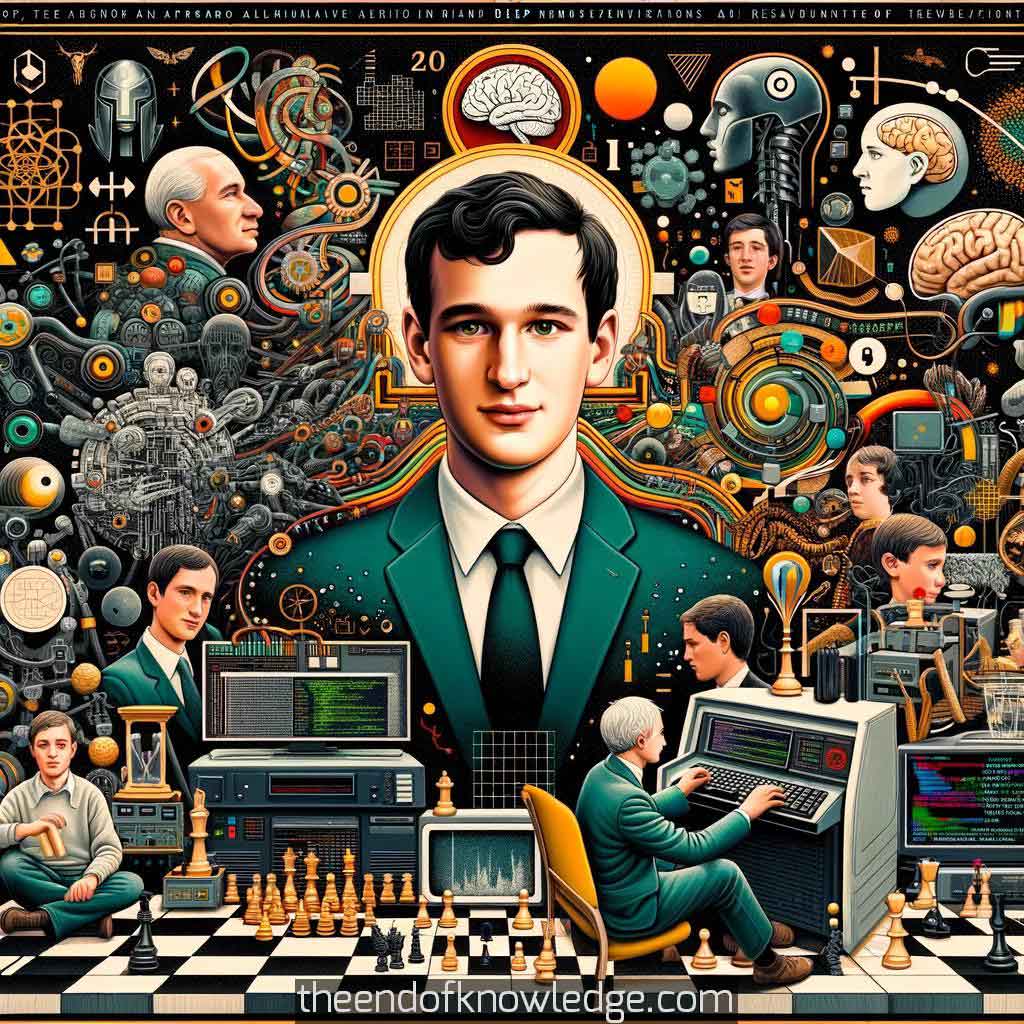 >
>
Concept Graph (using Gemini Ultra + Claude3):
Custom ChatGPT resume of the OpenAI Whisper transcription:
1.- David Silver leads the Reinforcement Learning Research Group at DeepMind and significantly contributed to AlphaGo, AlphaZero, and AlphaStar.
2.- Silver describes his childhood fascination with computers, starting with writing simple programs on a BBC Microcomputer at age seven.
3.- His early computer experiences combined play with creative exploration, leading to an interest in problem-solving and the limitless possibilities of computers.
4.- Silver was inspired by his father, who shifted his career to study AI, influencing Silver's early exposure to programming and AI concepts.
5.- At the University of Cambridge, Silver's interest in AI deepened, driven by the challenge of replicating human intelligence in machines.
6.- Silver's first significant AI experience was in the gaming industry, where he worked on AI for games, focusing on handcrafted solutions.
7.- He pursued a PhD focusing on applying reinforcement learning to the game of Go, creating a self-learning system that surpassed his own Go skills.
8.- His PhD project laid the groundwork for later work on Go, emphasizing trial-and-error learning in AI.
9.- Silver explains the challenge of Go: its intuitive play style and vast search space made traditional AI approaches ineffective.
10.- He saw mastering Go as not just a game challenge but a step towards understanding and creating human-like intelligence.
11.- His early work in Computer Go, before deep learning, focused on self-learning systems based on reinforcement learning principles.
12.- Joining DeepMind, Silver aimed to tackle AI problems with a more principled, scientific approach, focusing on learning and understanding rather than handcrafted knowledge.
13.- DeepMind's approach combined deep learning with reinforcement learning, utilizing neural networks' power to generalize from raw data.
14.- The AlphaGo project at DeepMind aimed to create an AI capable of mastering Go, a task considered a significant challenge due to the game's complexity.
15.- Silver emphasizes the importance of learning in AI, seeing it as essential for achieving high performance in complex environments.
16.- AlphaGo's development involved both learning from human-played games and self-learning through playing against itself.
17.- The success of AlphaGo was partly attributed to its innovative approach, combining deep learning with Monte Carlo Tree Search.
18.- Silver reflects on the significance of AlphaGo's victory against Lee Sedol, acknowledging its impact and the public interest it generated.
19.- He discusses the scientific and experimental nature of DeepMind's work, focusing on understanding and advancing AI rather than just achieving specific milestones.
20.- The conversation touches on AlphaGo Zero, an advanced version of AlphaGo that learned entirely through self-play without human data, showcasing the power of reinforcement learning.
21.- Silver's work extends beyond Go, contributing to AI developments in other complex games and broader AI challenges.
22.- He highlights the interdisciplinary nature of AI research, incorporating ideas from various fields like psychology, neuroscience, and economics.
23.- Silver sees reinforcement learning as a central theme in understanding intelligence, potentially guiding future AI research and development.
24.- He discusses the balance between exploiting known strategies and exploring new ones in reinforcement learning, a key challenge in AI.
25.- Silver emphasizes the importance of both theoretical and practical aspects of AI research, advocating for a balance between foundational understanding and application-driven development.
26.- The conversation delves into the philosophical aspects of AI, exploring questions about the nature of intelligence, consciousness, and the future of AI-human interaction.
27.- Silver reflects on the ethical considerations and societal impacts of AI advancements, stressing responsible and beneficial AI development.
28.- He shares insights on the challenges of AI research, including dealing with uncertainty, complexity, and the limitations of current technology.
29.- Silver expresses optimism about the future of AI, envisioning significant advancements and contributions to various fields, driven by ongoing research and innovation.
30.- The interview concludes with Silver discussing his personal motivations and aspirations in AI research, aiming to contribute to a deeper understanding of intelligence and the development of beneficial AI technologies.
Interview byLex Fridman| Custom GPT and Knowledge Vault built byDavid Vivancos 2024